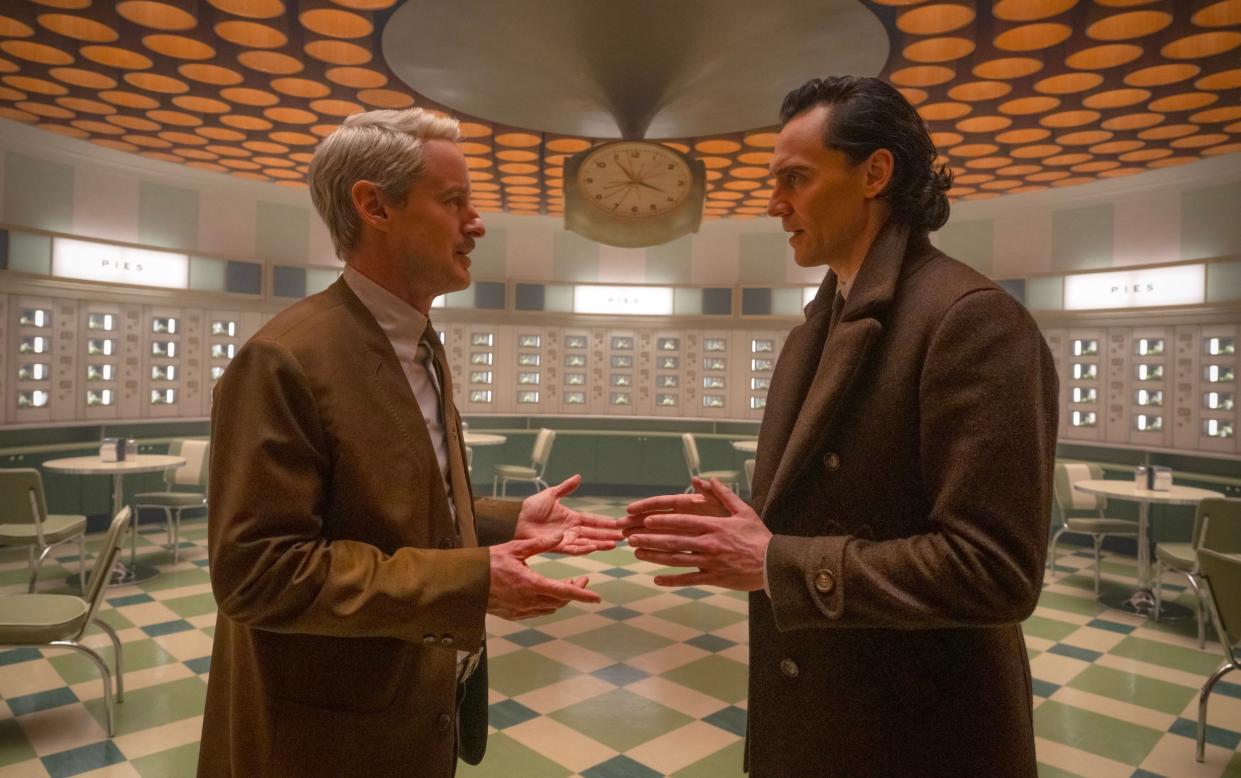Loki, Disney+, review: a bloodless cover version of Marvel’s lapsed glory days

Marvel has pulled off many breathtaking feats: from rescuing the career of a then-unhireable Robert Downey Jr with the original Iron Man to making CGI blob Thanos one of the great movie villains via the Avengers saga. But in series two of Loki (Disney+), the ailing franchise is working miracles in reverse. It has taken Tom Hiddleston’s trickster god and stripped him of his devilish guile. The character is reduced to a bloodless cover version of the anti-hero audiences have come to adore. Welcome to hokey Loki karaoke.
The problems with Loki’s second chapter are, to a degree, structural. In season one, the show took on the intriguing challenge of making the charismatic but essentially villainous Loki into a sympathetic underdog, through his new career working with the Man from U.N.C.L.E-style “Time Variance Authority”. Yet, with Loki redeemed, there is nowhere for Hiddleston to go. Instead, he settles into a dreary do-gooder groove that makes him unrecognisable from his previous incarnation as rockstar knave.
But if there is too little of Loki’s malevolent charm, there is far too much of everything else. Too many parallel universes, too many baffling timelines. And, in particular, far too many scenes in which Loki and sidekick Mobius (a shrugging Owen Wilson) hopscotch across time and space, apparently for no other reason than to allow Marvel to recreate 1970s London and 19th-century Chicago.
Having parted from the Avengers, Loki has signed up with the TVA to prevent an excess of alternative dimensions causing the universe to implode. Or so he thought: Loki has yet to recover from the bombshell at the end of season one that the TVA was set up by an avatar of mega-villain Kang the Conqueror – here referred to as He Who Remains. An organisation supposedly created to do good had been a vehicle for villainy all along.
Kang/He Who Remains is portrayed by Jonathan Majors, whose career was understood to be in meltdown following his arrest on domestic violence charges. Marvel, though, is sticking with him.
The gamble pays off. Majors brings a winning eccentricity to Victor Timely – an alias of Kang whom Loki and Mobius meet on their wanderings. Loki meanwhile continues to pine for girlfriend and alter-ego Sylvie (Sophia Di Martino), from whom he parted on uncertain terms in the series one finale.
Hiddleston tries his best, but his turbo-charged suaveness runs aground on the moribund plot. There is also an enthusiastic turn from Oscar-winning Everything Everywhere All At Once actor Ke Huy Quan as Ouroboros, a boffin working at the nerve centre of the TVA (think John le Carré’s MI6 meets David Brent’s Wernham Hogg). As with Hiddleston, though, his hard work meets the unmovable force of an inert script.
These are dark days for Disney’s once unsinkable comic-book brand. On the back of the atrocious Secret Invasion, the last thing Marvel can afford is another stinker. Loki season two is nowhere near as dreadful. Instead, it is merely dreary and hollowed-out. Hiddleston’s silver-tongued deity has become the god of plod – and you wonder if there’s a way back for either the character or Marvel.
Season two of Loki is on Disney+ now

 Yahoo News
Yahoo News 
